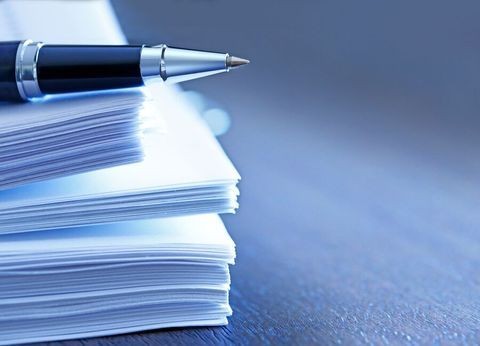It's Official: Patent Agents May Confer Privilege!
Client Alert | 2 min read | 03.08.16
Communications with patent agents are now legally privileged, at least to a certain extent, based on the March 7, 2016 decision of the Federal Circuit in In re Queen’s University at Kingston, Parteq Research and Development Innovations, No. 2015-145. (Slip Op.). The existence of a “patent agent privilege” was one of first impression at the Federal Circuit and resolved a split among the circuits. Overturning the Eastern District of Texas’ grant of a motion to compel various communications with patent agents, the Federal Circuit, applying its own law, found that a “patent agent privilege” must be acknowledged.
Despite noting a presumption against creating new privileges, the Federal Circuit found that the unique role of patent agents, the congressional recognition of their authority to act, the Supreme Court’s characterization of their role as the practice of law, and the current realities of patent litigation combined to justify recognition of an independent privilege for patent agents. However, the scope of the patent agent privilege is not unfettered. According to the Court, the burden of asserting privilege “rests squarely on the party asserting the privilege.” Slip op. at 24.
Moreover, as suggested by the Court, the patent agent privilege extends only to communications reasonably necessary and incident to the prosecution of patents before the U.S. Patent and Trademark Office (USPTO). Contra at 25. In accordance with the Court’s opinion, protected communications appear to include those related to “[p]ractice before the Office… includ[ing]…”
- Preparing and prosecuting any patent application.
- Consulting with or giving advice to a client in contemplation of filing a patent application or other document with the USPTO.
- Drafting the specification or claims of a patent application.
- Drafting an amendment or reply to a communication from the USPTO that may require written argument to establish the patentability of a claimed invention.
- Drafting a reply to a communication from the USPTO regarding a patent application.
- Drafting a communication for a public use, interference, reexamination proceeding, petition, appeal to or any other proceeding before the Patent Trial and Appeal Board, or other proceeding.
See id. at 24 (quoting 37 C.F.R. 11.5(b)(1)).
The Court’s opinion ensures a privileged haven for law firms and clients who frequently rely upon the work of patent agents in U.S. prosecution matters. However, open questions remain regarding the scope of this newly created privilege.
For example, does foreign prosecution corresponding to U.S. applications and overseen by patent agents remain discoverable? If so, this may provide a loophole by which litigants can discover advice and arguments advanced by patent agents in related applications, where the work of an attorney would remain protected.
Contacts
Insights
Client Alert | 2 min read | 04.29.25
President Trump Issues Executive Order Deprioritizing Disparate Impact Theory of Discrimination
On April 23, 2025, President Trump signed an executive order, Restoring Equality of Opportunity and Meritocracy, declaring it the policy of the United States “to eliminate the use of disparate-impact liability in all contexts to the maximum degree possible to avoid violating the constitution, Federal civil rights laws, and basic American ideals.” The order reasons that “disparate impact liability all but requires individuals and businesses to consider race and engage in racial balancing to avoid potentially crippling legal liability.”
Client Alert | 6 min read | 04.28.25
Client Alert | 3 min read | 04.28.25
Client Alert | 3 min read | 04.25.25



